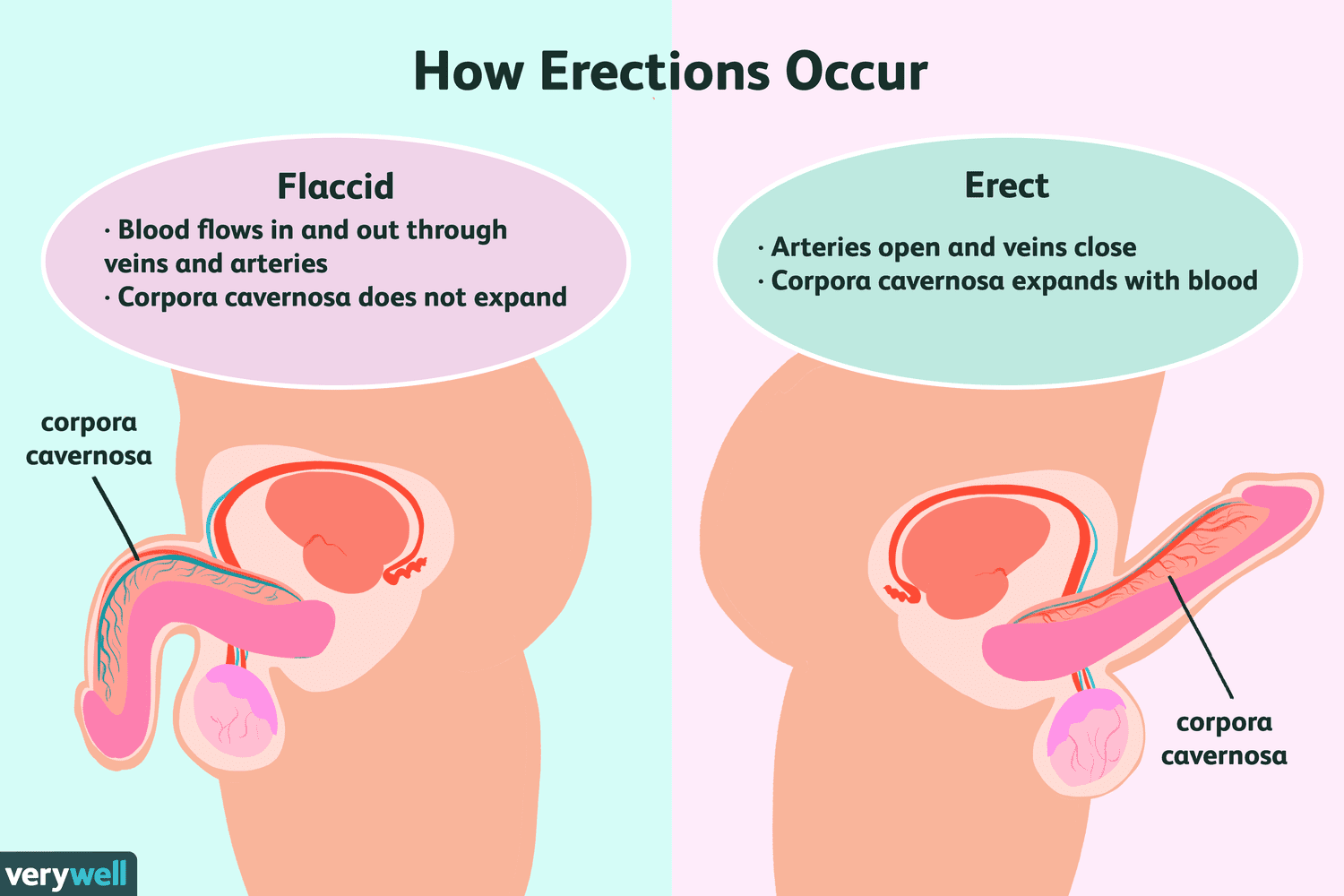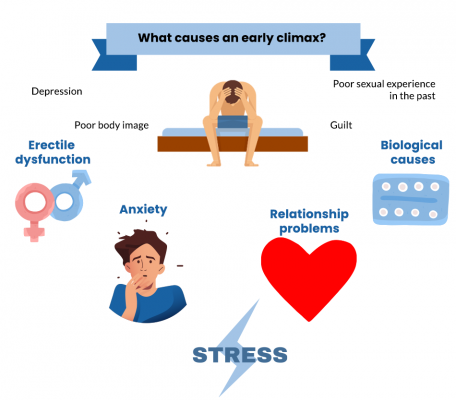Premature Ejaculation OR Erectile Dysfunction

What is erectile dysfunction?
Erectile dysfunction, commonly referred to as ED, is defined as the inability for a man to achieve or maintain an erection that is firm enough for sexual intercourse. The Three Most Common Symptoms of ED are:
- Difficulty getting an erection
- Softer erections
- Erections that cannot be maintained
What causes ED?
It’s quite common for men to be unable to get it up in the bedroom, but if it’s happening more than 50% of the time, you may have a medical issue that’s worth investigating. Both physical & psychological factor can cause impotense. Common physical causes of ED include:
- Diabetes
- Cardiovascular disease
- High B.P or Hypertension
- High Cholestrol
- Unhealthy lifestyle
ED could also be caused by psychological triggers, such as:
- Anxiety
- Depression
- Stress
- Negative thoughts related to sex
Depending on the underlying reason for your erectile dysfunction, there are different approaches to treatment. For example, counselling and therapy would be good options if you’re feeling anxious or stressed about sex and, in turn, unable to get an erection. If an unhealthy lifestyle is causing ED, losing weight, quitting smoking and adopting a healthier diet could all help treat ED.

What is premature ejaculation?
Premature ejaculation, also referred to as PE, is when a man ejaculates sooner than he or his partner would like. There are a few indicators that could cause you to seek professional treatment, including:
- Always or almost always ejaculating within one minute of penetration
- Unable to delay ejaculation during sex every time or almost every time
- Avoiding sexual intimacy due to feeling distressed and frustrated from PE
What causes PE?
There are two different types of PE: lifelong premature ejaculation and acquired premature ejaculation.
Lifelong premature ejaculation describes when a man experiences PE during his first sexual encounter and it occurs almost every time, or every time, he engages in sexual activity.
Acquired premature ejaculation develops after previous sexual experiences without ejaculatory problems, but now it happens every time or almost every time.
Both types of P.E can be caused by physical & psychological condition. Common physical reasons include:
- Chemical imbalances in the part of the brain that controls ejaculation
- Hormonal imbalances such as thyroid disease or hypertension
- Urological conditions concerning the prostate or urethra
- Hereditary traits
Psychological factors that could cause PE include:
- Anxiety
- Stress
- Depression
- Poor body image or self esteem
- Sexual abuse and negative sexual experiences
- Interpersonal problems within the relationship
Sexual Dysfunction
Sexual dysfunction can be any problems that prevent a person or couple from experiencing satisfaction from sexual activity. Some 43% of women and 31% of men report some degree of sexual dysfunction
What are the types of sexual dysfunction?
Sexual dysfunction generally is classified into four categories:
- Desire disorders: lack of sexual desire or interest in sex.
- Arousal disorders: inability to become physically aroused or excited during sexual activity.
- Orgasm disorders: delay or absence of orgasm (climax).
- Pain disorders: pain during intercourse.
What are the symptoms of sexual dysfunction?
In people assigned male at birth:
- Inability to achieve or maintain an erection (hard penis) suitable for intercourse (Erectile Dysfunction).
- Absent or delayed ejaculation despite enough sexual stimulation (retarded ejaculation).
- Inability to control the timing of ejaculation (early, or premature, ejaculation).
In people assigned female at birth:
- Inability to achieve orgasm.
- Inadequate vaginal lubrication before and during intercourse.
- Inability to relax the vaginal muscles enough to allow intercourse.
In everyone:
- Lack of interest in or desire for sex.
- Inability to become aroused.
- Pain with intercourse.
What causes sexual dysfunction?
Physical causes: Many physical and/or medical conditions can cause problems with sexual function. These conditions include diabetes, Heart & Vascular ( Blood Vessel Disease), neurological disorders, hormonal imbalances, chronic diseases such as kidney or liver failure, and alcohol use disorder and substance use disorder. In addition, the side effects of some medications, including some antidepresent drugs, can affect sexual function.
Psychological causes: These include work-related stress and anxiety, concern about sexual performance, marital or relationship problems, depression, feelings of guilt, concerns about body image and the effects of a past sexual trauma

 ©
©